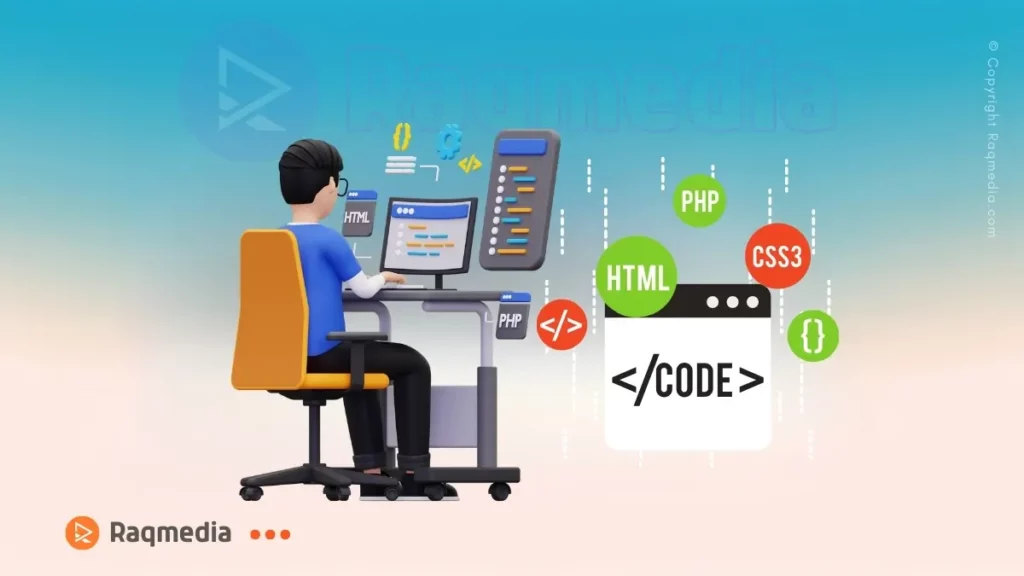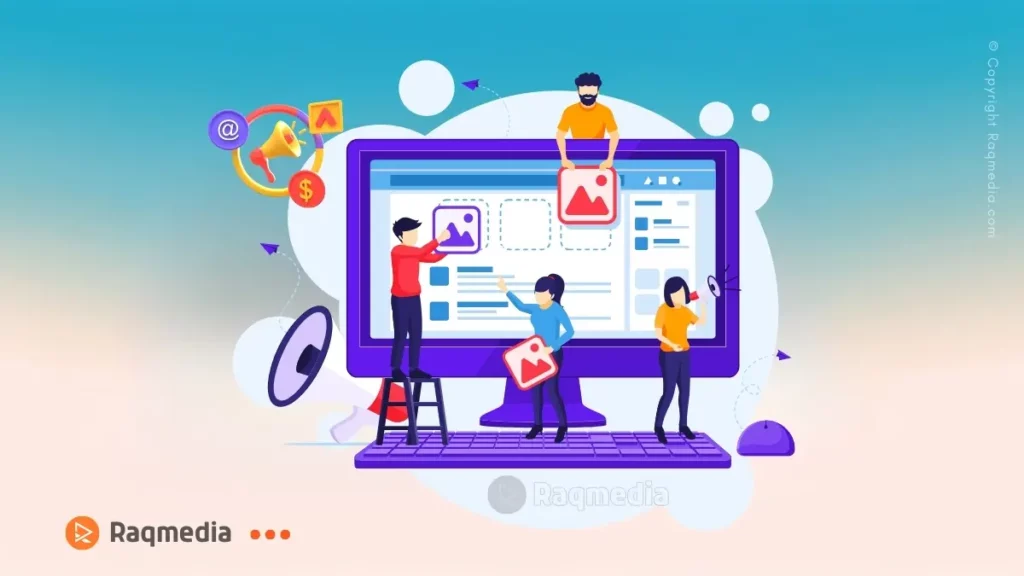In the vast landscape of web development, where innovation and creativity converge with technology, mastering web coding and Apache emerges as a foundational cornerstone. Picture this: a dynamic website that seamlessly responds to user interactions or an impeccably hosted platform that serves content efficiently – all made possible through the artful fusion of web coding skills and Apache expertise.
For web developers, beginners dipping their toes in the coding realm, and tech enthusiasts eager to unravel the digital mysteries, these skills act as gateways to unlocking boundless possibilities in the digital realm.
Mastering Web Coding and Apache: Your Essential Guide
Delving into the world of web coding unveils a realm where HTML, CSS, JavaScript, and other languages harmonize to craft visually captivating websites and interactive applications. Imagine sculpting virtual experiences with each line of code—a canvas where ideas transform into tangible realities. Meanwhile, navigating the intricacies of an Apache server confers the power to host these creations effectively, offering users seamless access to your digital manifestations.

This symbiotic relationship between coding prowess and Apache wizardry not only empowers individuals in crafting compelling online experiences but also opens avenues for innovation and exploration in the ever-evolving digital sphere. Ready for a journey that promises enlightenment amidst lines of code and virtual servers? Let’s embark together on a transformative odyssey into mastering Web Coding and Apache: Your Essential Guide.
Understanding Web Coding
Web coding forms the backbone of every interactive and visually appealing website you come across on the internet. To delve into web development, it’s essential to grasp the basic principles of programming languages like HTML, CSS, and JavaScript. HTML (HyperText Markup Language) provides structure to web content by defining headings, paragraphs, images, links, and more. CSS (Cascading Style Sheets) controls the visual presentation of a web page, allowing you to customize colors, layouts, fonts, and animations. JavaScript brings interactivity to websites with dynamic elements like sliders, pop-up modals, and form validations.
The importance of mastering these languages cannot be overstated when it comes to creating dynamic websites that engage users. For instance, imagine a website that uses HTML for organizing its content logically, combined with CSS for styling it beautifully in an aesthetically pleasing manner. Adding JavaScript into the mix empowers developers to create interactive features such as dropdown menus or real-time data updates without reloading the entire page. These languages work harmoniously together to bring life to a static webpage and provide a seamless user experience.
If you are just starting out on your web coding journey as a beginner, there are numerous online platforms like Codecademy, freeCodeCamp, and W3Schools that offer tutorials and interactive exercises to help you learn the basics of HTML, CSS, and JavaScript. Starting with simple projects like building a personal portfolio website or recreating a webpage layout you admire can be a great way to practice your skills. Remember that practice makes perfect in coding – don’t hesitate to experiment with code snippets and challenge yourself with new concepts regularly to enhance your proficiency in web development.
Getting Started with Apache
Apache server software plays a crucial role in the world of web development by acting as the bridge between websites or web applications and users accessing them. Setting up an Apache server for your personal website or project involves installing the software on a server, configuring it to serve web pages, and managing its settings to ensure smooth performance. Think of Apache as the engine that powers your digital creations, handling requests from users’ browsers and delivering the content they seek.
When configuring an Apache server, you can customize various settings to optimize performance based on your website’s needs. This may include setting up virtual hosts to manage multiple websites on a single server or adjusting caching mechanisms to enhance loading speeds. Troubleshooting common issues with Apache might involve checking error logs for any warnings or errors, ensuring proper file permissions are set, or troubleshooting network configurations that could be affecting connectivity.

An example of configuring an Apache server involves creating an .htaccess file to control certain aspects of how your website functions, such as redirecting URLs or blocking specific IP addresses. These configurations can impact the security and functionality of your site, so understanding how to work with .htaccess files is essential for web developers using Apache servers. By familiarizing yourself with these foundational aspects of working with Apache, you can ensure that your websites run smoothly and securely while gaining valuable skills in managing server environments effectively.
Advanced Web Development Techniques
Once you have a solid foundation in web coding and understand the basics of Apache, it’s time to delve into more advanced techniques to take your web development skills to the next level. Advanced techniques like responsive design allow websites to adapt seamlessly to different screen sizes and devices, providing an optimal user experience. By utilizing CSS media queries and flexible grids, developers can create websites that look great on any device, from mobile phones to large desktop screens.
APIs (Application Programming Interfaces) integration is another crucial aspect of modern web development. It enables different software systems to communicate with each other, allowing for the seamless exchange of data and functionality. For instance, integrating a payment gateway API into an e-commerce website facilitates secure online transactions. Understanding how APIs work and integrating them effectively can enhance the functionality and user experience of your website.
Database connectivity is essential for dynamic websites that rely on storing and retrieving data. By learning how to interact with databases using languages like SQL (Structured Query Language), developers can create interactive websites that display real-time information based on user input or system interactions. Utilizing frameworks like Node.js for server-side scripting can streamline database interactions and improve website responsiveness.
To optimize websites for speed and performance, developers should implement best practices both in coding techniques and Apache configurations. Techniques such as minifying CSS and JavaScript files, optimizing images, using caching mechanisms, and enabling Gzip compression can significantly reduce loading times. Configuring Apache server settings like caching policies, request handling parameters, and security protocols can further boost performance. By combining efficient coding practices with proper server configurations, developers can ensure their websites load quickly and deliver a seamless user experience.
Security Measures in Web Development
Maintaining a secure web environment is paramount in the digital era, where cyber threats loom large. Websites face a myriad of security risks, ranging from SQL injection attacks to cross-site scripting (XSS) vulnerabilities. By adopting best coding practices and configuring server settings meticulously, developers can fortify their websites against these threats. For instance, ensuring input validation in forms and sanitizing user inputs can help prevent malicious code injection attempts like SQL injections, which aim to manipulate a site’s database through vulnerable input fields.
Implementing SSL certificates on Apache servers is another crucial step towards enhancing website security. SSL encryption safeguards sensitive data transmitted between users’ browsers and the server, preventing unauthorized access or tampering with the information exchanged. Configuring Apache to enforce HTTPS connections using SSL/TLS protocols provides an added layer of protection for data privacy and integrity. By encrypting traffic via SSL certificates, websites not only safeguard user interactions but also boost trust among visitors by displaying the padlock icon signifying a secure connection.

Regular maintenance tasks play a pivotal role in upholding website security standards. Conducting routine security audits, applying software updates promptly, and monitoring server logs for suspicious activities are essential practices to thwart potential cyber threats effectively. Vulnerability scans and penetration testing can uncover loopholes that attackers might exploit, enabling developers to rectify issues proactively before they escalate into significant breaches. Implementing robust backup mechanisms and disaster recovery plans further ensures resilience against unforeseen incidents, helping websites recover swiftly from any potential security compromise.
In essence, prioritizing security measures in web development goes beyond safeguarding data—it instills confidence in users regarding the reliability of a website. By adhering to sound coding principles, implementing SSL encryption on Apache servers, and consistently monitoring for vulnerabilities through regular maintenance checks, developers can create safer online experiences for visitors while fortifying their digital assets against evolving cyber threats.
Collaboration Tools for Web Developers
Web development projects often involve collaboration among team members, and utilizing the right tools can significantly enhance productivity and efficiency. Version control systems like Git are a staple in modern web development workflows. They allow developers to track changes, collaborate seamlessly, and revert to previous versions if needed. Platforms like GitHub provide a collaborative environment where developers can work on code together, review each other’s contributions, and manage project repositories effectively.
In addition to version control systems, project management platforms such as Trello or Asana play a vital role in keeping web development projects organized. These tools enable teams to create tasks, set deadlines, assign responsibilities, and track project progress in real-time. By using these platforms, developers can streamline communication, prioritize tasks efficiently, and ensure that projects stay on schedule.
Effective collaboration within a team or community is key to successful web development projects. Clear communication channels such as Slack or Microsoft Teams facilitate real-time discussions, file sharing, and quick problem-solving among team members. Establishing communication norms and setting up regular check-ins can keep everyone on the same page and foster a harmonious working environment. Open lines of communication encourage idea sharing, feedback exchange, and mutual support among team members.
The benefits of using collaboration tools extend beyond just efficient project management. By leveraging these tools effectively, web developers can enhance teamwork dynamics, boost creativity through brainstorming sessions, and build a sense of camaraderie within the team. Moreover, utilizing collaboration tools helps streamline workflows, reduce errors due to miscommunication or version conflicts, and ultimately deliver high-quality web applications or websites in a timely manner.
Stay Current: Industry Trends & Updates
Staying current with industry trends in web coding languages, frameworks, and technologies is vital for web developers to remain competitive and relevant in the ever-evolving tech landscape. By keeping abreast of the latest advancements, developers can harness new tools and techniques to enhance their projects and skill sets. For example, being updated on emerging JavaScript frameworks like React or Vue.js can open up opportunities to create more interactive and seamless user experiences on websites.
Continuous learning resources play a pivotal role in helping developers stay ahead in their field. Online platforms like Udemy, Coursera, and freeCodeCamp offer a plethora of courses ranging from beginner to advanced levels in various programming languages and web development topics. Additionally, participating in developer forums like Stack Overflow or joining tech-related communities on platforms like Reddit can provide valuable insights, solutions to coding challenges, and networking opportunities within the industry.
Furthermore, attending conferences and workshops dedicated to web development can offer hands-on experience with cutting-edge technologies while also providing a platform for networking with industry experts. For instance, events like Google I/O or Adobe MAX not only showcase the latest innovations but also allow developers to interact with peers and gain new perspectives on best practices in coding. By proactively seeking out these learning opportunities, developers can continuously expand their knowledge base and skill set, paving the way for career growth and advancement in the tech industry.
Conclusion
Mastering web coding and Apache opens a world of possibilities for web developers, beginners in coding, and tech enthusiasts. Understanding the fundamentals of programming languages like HTML, CSS, and JavaScript allows for the creation of dynamic and interactive websites. Combining these skills with knowledge of setting up and configuring Apache servers enables you to host your own websites and applications with ease.
By delving into advanced web development techniques such as responsive design, APIs integration, and database connectivity, you can further enhance the functionality and performance of your projects. Security measures play a crucial role in safeguarding your work against potential threats, highlighting the importance of SSL certificates and regular maintenance tasks to ensure website security.
Embracing collaboration tools like version control systems and project management platforms fosters efficient teamwork in web development projects. Finally, staying current with industry trends through continuous learning ensures that developers remain at the forefront of technological advancements, enhancing their skill set and career opportunities.
FAQs:
1. Can I start learning web coding if I have no prior experience?
Absolutely! Many resources cater to beginners in coding. Start with online tutorials or courses focusing on HTML and CSS to build a solid foundation.
2. What are some common security threats faced by websites?
Websites often face threats like SQL injection attacks, cross-site scripting (XSS), DDoS attacks, and more. Implementing secure coding practices helps mitigate these risks.
3. How can I optimize my website for speed using Apache configurations?
Leveraging techniques like caching, gzip compression, optimizing server settings & resources effectively improve site speed performance via Apache configurations.
4. Why is collaborating with version control systems essential for web development projects?
Version control systems help track changes made to code by team members allowing for seamless collaboration while ensuring backup copies of previous versions are available.
5. What benefits do staying updated with industry trends bring to my career as a developer?
Staying current enhances your skill set keeping you versatile in adapting to new technologies driving career growth opportunities within an ever-evolving industry landscape.

Leave a Reply
You must be logged in to post a comment.